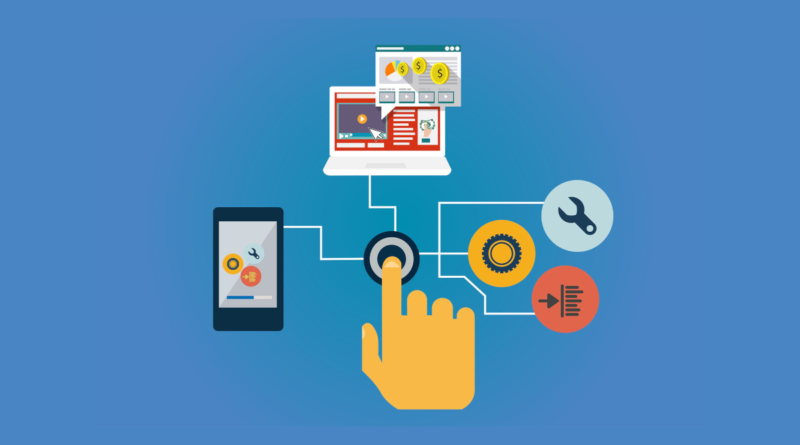10 Underused eCommerce Software Features You Shouldn’t Ignore
If you’re running an eCommerce business, you’re likely using software to help manage inventory, track customers, and process orders. But are you taking full advantage of all the features your software has to offer? You may be missing out on some powerful tools that could save you time and money.
In this article, you’ll discover 10 eCommerce software features you may be overlooking on your eCommerce site. You’ll also explore how these features can help you create a better online store experience.
1. Email Marketing
Email marketing tools in eCommerce software can be used to increase sales, build customer loyalty, and boost customer satisfaction. According to a survey by Statista, there are around 4.3 billion email users as of 2022. With this, you can reach new customers and keep existing customers coming back for more.
When used correctly, email marketing can be an extremely effective way to promote your eCommerce business. To get the most out of your email marketing campaigns, it’s important to choose the right email marketing integration for your eCommerce software.
2. Abandoned Cart Emails
As highlighted in moosend’s statistics, setting up an automated cart abandonment email is a great way to lower your cart abandonment rates. This email is automatically sent to a customer who has started the checkout process on your site but didn’t complete the purchase.
There are a few key reasons why abandoned cart emails are so important. First, they give you another chance to market to potential customers who may have been interested in your products but were unsure about completing the purchase.
Second, they help you build relationships with customers by showing you care about their shopping experience and want to help them complete their purchases. Finally, abandoned cart emails can lead to increased sales and revenue for your business.
Overall, abandoned cart emails are a valuable tool for any eCommerce business. They provide a second chance to convert potential customers into paying customers, while also helping you build strong relationships with your customer base.
3. Discount Codes and Coupons
Discount codes and coupons are essential features in online marketplace development. They allow businesses to offer discounts and coupons to their customers, which can save them money on their purchases.
As emphasized in Investopedia, this tool can be used to attract new customers. By offering a discount or coupon, businesses can encourage people to try their products or services. This can help businesses expand their customer base and increase sales.
Overall, the discount codes and coupons feature is important in eCommerce platform because it can help businesses save money, attract new customers, and boost sales.
4. Automatic Referrals

As eCommerce has become increasingly prevalent, the importance of automatic referrals in eCommerce software has also grown. Automatic referrals help ensure your customers are able to find the products and services they need when they need them.
There are a few key reasons why automatic referrals are important in eCommerce software. First, they help improve customer satisfaction by making it easier for customers to find what they need.
Second, they can help increase sales by making it more likely that customers will find the products and services they need. Finally, automatic referrals can help reduce costs by helping businesses avoid the need to manually process customer orders.
Overall, automatic referrals are an important part of eCommerce software because they help improve customer satisfaction, increase sales, and reduce costs.
5. Order History
The order history feature is important when getting the best eCommerce software for your business.
For one, it allows customers to keep track of their previous orders and easily reorder items they’ve ordered before. This is especially useful for customers who order the same items on a regular basis.
The order history can also be used to provide customer support in the event there are problems with an order. Customer service representatives can use the order history to view details about a customer’s previous orders and help resolve any issues.
Lastly, the order history can be used for marketing purposes. For example, eCommerce businesses can use purchase data to send targeted emails or advertisements to customers based on their previous orders.
6. Live Chat
When creating an eCommerce website features list, live chat is probably on top. The same should go for eCommerce software.
Live chat allows customers to get their questions answered in real time by a customer service representative. This is important because it allows for immediate resolutions to customer concerns, which can result in higher satisfaction and loyalty rates. In addition, live chat can help boost sales by providing potential customers with the information they need to make a purchase decision on the spot.
Overall, live chat is an essential part of ecommerce software because it provides a better customer experience and can help increase sales.
7. Remote Storage
When looking at the best eCommerce platforms examples, make sure your chosen software includes a remote storage feature. This allows businesses to store their data off-site. The remote storage feature is important for several reasons.
First, it provides a backup in case the primary data center goes down. Second, it helps businesses comply with data regulations, such as the General Data Protection Regulation (GDPR). Finally, it can improve performance by reducing the load on the primary data center.
8. Tracking Tools for Mobile Users
As mobile commerce continues to grow, it’s more important than ever for businesses to have tracking tools in place to track the behavior of mobile users. By understanding how mobile users interact with their site or app, businesses can make necessary changes to improve the user experience and increase conversions.
There are a few key reasons why tracking tools for mobile users are important in eCommerce software:
- Mobile users have different needs and expectations than desktop users.
- Mobile devices have different capabilities than desktop computers, so businesses need to ensure their site or app is optimized for mobile.
- Mobile commerce is growing at a rapid pace, so it’s crucial for businesses to stay ahead of the curve and understand the latest trends and technologies.
On the other hand, if you want to easily track customer data and information, you can do so by integrating your ecommerce software with a CRM tool like Bigin.
9. Security Scans and Password Managers
Security scans and password managers are two important tools that can help keep your eCommerce site safe from hackers.
Security scans help identify vulnerabilities in your code that could be exploited by attackers. Meanwhile, password managers can help keep your passwords safe and secure, making it more difficult for hackers to gain access to your account.
Both security scans and password managers are important tools that can help keep your eCommerce site safe. By using these tools, you can help protect your customers’ data and reduce the risk of being hacked.
10. Auto Resellers/Wholesalers Tools
Auto resellers or wholesaler tools can help you automate many of your tasks, including listing products, processing orders, and managing inventory. Using these tools can save you time and money by eliminating the need to manually perform these tasks.
In addition, these tools can help you scale your business by allowing you to easily add new products and SKUs. You can also focus on other aspects of your business, such as marketing and customer service, which leads to more sales and happier customers.
Get the Most Out of Your eCommerce Software
eCommerce software provides many benefits and can be very helpful in growing your business marketplace. However, it’s important to do your research and choose the right software for your needs.
Additionally, be sure to keep your software up-to-date and take advantage of all the features it has to offer. Doing so will help you maximize the benefits of using eCommerce software and help you run your business more efficiently.
Image by Mudassar Iqbal from Pixabay
Yan Anderson is the Head of Content Marketing at CS-Cart with over 10 years of experience in the eCommerce industry. He's passionate about explaining complicated things in simple terms. Yan has expertise in building, running and growing eCommerce marketplaces. He loves to educate people about best practices, new technologies, and trends in the global eCommerce industry.

